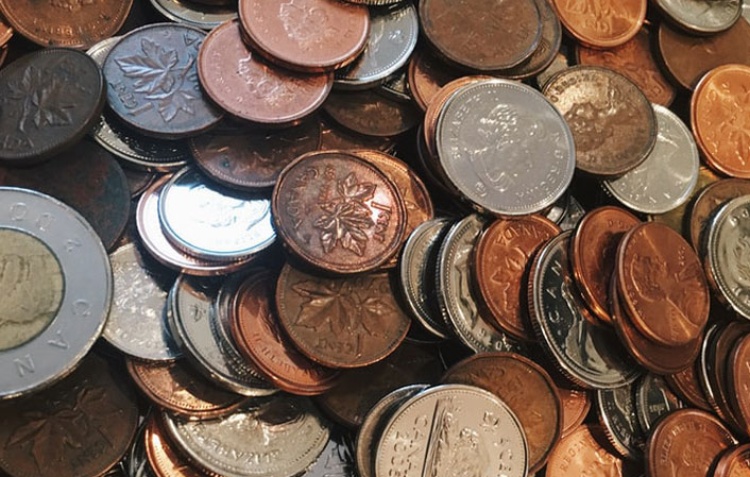Una cosa es confiar en Dios para proveer nuestras necesidades actuales (Mateo 6:33). Y otra suponer que él nos proveerá de acuerdo a nuestros términos (mediante una decisión de incurrir en alguna deuda). Al optar por endeudarnos, torcemos el brazo de Dios para proveer no sólo nuestras necesidades, sino también nuestros deseos.
¿Creemos que Dios sabe mejor cuáles son nuestras necesidades? Deuda es gastar el dinero que no tenemos. Entonces, ¿no es una muestra nuestra decisión de entrar en una deuda de que creemos que necesitamos más de lo que Dios nos ha dado? Si no tenemos los recursos para comprar algo, y si sentimos esa necesidad de tomar prestado para obtenerlo, ¿no estamos diciendo que Dios no ha logrado satisfacer nuestras necesidades?
Si Dios nos conoce bien, y si Él sabe lo que necesitamos, entonces ¿por qué no ha provisto fondos suficientes? ¿Nos está animando a orar por la provisión en vez de tomar las cosas en nuestras propias manos pidiendo prestado? En esta época en la que parece que no estamos dispuestos a esperar nada, ¿quiere Dios que aprendamos lo que significa “esperar en el Señor”? (Salmo 27:14, Isaías 30:18).
Antes de endeudarnos, debemos hacernos las siguientes preguntas:
1. ¿Es la deuda nuestra forma de depender de Dios? (¿Por qué confiar en Dios para proveer cuando podemos obtener un préstamo?)
2. ¿Es la deuda una forma de “aventajar” los medios de adquisición creados por Dios -incluyendo el trabajo, el ahorro, la planificación, la autodisciplina, la paciencia y la espera de la provisión divina?
3. ¿Qué mensaje estamos enviando a Dios cuando nos endeudamos en lugar de vivir con lo que Él nos ha proporcionado? ¿Qué estamos diciendo realmente cuando tomamos un préstamo? ¿Cómo refleja nuestra visión de Dios? ¿Qué estamos diciendo acerca de Su soberanía, bondad, sabiduría o tiempo?
4. ¿Qué efecto tendrá endeudarse hoy sobre nuestra capacidad o la voluntad de diezmar y dar ofrendas voluntarias mañana?
5. ¿Qué efecto tendrá hoy la decisión de endeudarse con la libertad para seguir a Dios a donde quiere que vayamos el día de mañana?
6. Al tomar un préstamo que nos compromete a hacer pagos durante varios años, ¿estamos presuponiendo los deseos de Dios? (Ciertamente, si requerimos más ingresos para hacer los pagos, estamos presumiendo lo que Dios hará. Podemos “saber” que recibiremos una promoción y un aumento de sueldo en septiembre, pero Dios no lo ha garantizado. Los planes cambian, las empresas salen del negocio y los empleados no obtienen “ciertas” promociones).
7. Aunque nuestros ingresos hoy en día podrían ser suficientes para hacer pagos de deudas durante los próximos veinte años, ¿es correcto suponer que seguiremos generando el mismo nivel de ingresos? (El ingreso de muchas personas aumenta a lo largo de los años, pero en muchos otros casos disminuyen. Muchos incurren en mayores compromisos financieros fuera de su control, como los gastos relacionados con la salud o el cuidado de un familiar anciano. La gente es despedida. ¿Ha prometido Dios que eso no nos puede suceder?)
8. ¿Estamos hipotecando el futuro para pagar los caprichos del presente? ¿Estamos hipotecando a Dios suponiendo que nos comprometamos a pagar algo que Él desaprueba?
9. ¿Es la deuda nuestra forma de depender de Dios? ¿Evadiendo la oración, la paciencia, y esperar que Dios proveerá?
10. Si “debemos” endeudarnos para cubrir nuestras “necesidades”, ¿es porque nuestras “necesidades” son realmente deseos disfrazados? ¿Hemos gastado tanto dinero en nuestros deseos que no hay suficiente para nuestras necesidades? ¿Hemos robado a Dios y perdido su bendición financiera al no darle las primicias?
11. ¿Realmente hemos agotado todas las otras vías para evitar endeudarnos? ¿Hemos renunciado a actividades costosas, pasatiempos y membresías, y hemos liquidado posesiones valiosas? (A menudo, creemos que no tenemos más remedio que endeudarnos, cuando de hecho estamos haciendo muchas elecciones innecesarias que nos impulsan hacia eso.)
Uno de los argumentos más fuertes para no endeudarse es que no somos Dios. No somos soberanos, omniscientes ni omnipotentes. Santiago 4:14 advierte que no podemos saber lo que pasará mañana. Y si no sabemos y no podemos controlar todo lo que tiene el futuro, ¿cómo podemos estar seguros de que podemos pagar nuevas deudas? Podemos estar seguros de que Dios proveerá nuestras necesidades materiales básicas si buscamos primero su reino (Mateo 6: 25-34), pero ¿dónde promete la Biblia que Dios proveerá todas las deudas que incurramos a través de nuestra codicia, impaciencia , o presunción?
Si buscamos primero su reino, ¿nos pondremos en esclavitud a las deudas?
11 Questions to Ask Ourselves About Debt
It’s one thing to trust God to provide for our present needs (Matthew 6:33). It’s another to presume upon Him by dictating (via a decision to incur debt) the terms of His future provision. By choosing to go into debt, we twist God’s arm to provide not only for our needs, but also our wants.
Do we believe God knows best what our needs are? Debt spends money we don’t have. So isn’t our decision to go into debt proof that we believe we need more than God has given us? If we don’t have the resources to buy something, and if we feel such need for it that we’re borrowing to get it, aren’t we saying God has failed to meet our needs?
If God knows best, and if He knows what we need, then why hasn’t He provided sufficient funds? Is He encouraging us to pray for provision rather than take things into our own hands by borrowing? In this age where we seem unwilling to wait for anything, does God want us to learn what it means to “wait on the Lord” (Psalm 27:14; Isaiah 30:18)?
Before we go into debt, we should ask ourselves the following questions:
1. Is debt our way of getting around depending on God? (Why trust God to provide when we can get a loan?)
2. Is debt our means of short-circuiting the God-created means of acquisition—including work, saving, planning, self-discipline, patience, and waiting for divine provision?
3. What message are we sending to God when we go into debt rather than live on what He has provided? What are we really saying when we take out a loan? How does it reflect on our view of God? What are we saying about His sovereignty, goodness, wisdom, or timing?
4. What effect will going into debt today have on our ability or willingness to tithe and give voluntary offerings tomorrow?
5. What effect will today’s decision to go into debt have on tomorrow’s freedom to follow God wherever He wants us to go?
6. By taking out a loan that commits us to make payments over a number of years, are we presuming upon God? (Certainly, if we will require more income to make the payments, we’re presuming on God. We may “know” that we’ll receive a promotion and pay raise in September, but God hasn’t guaranteed it. Plans change, companies go out of business, and employees fail to get “certain” promotions.)
7. Although our income today might be enough to make debt payments over the next twenty years, is it right to assume that we’ll continue to generate the same level of income? (Many people’s income increases over the years, but many others’ decreases. Many incur increased financial commitments beyond their control, such as health-related expenses or caring for an elderly relative. People get laid off. Has God promised that can’t happen to us?)
8. Are we mortgaging the future to pay for the whims of the present? Are we mortgaging God by supposing to commit Him to pay off something He may disapprove of?
9. Is debt our way of circumventing prayer, patience, and waiting on God to provide?
10. If we “must” go into debt to provide for our “needs,” is it because our “needs” are really wants in disguise? Have we spent so much money on our wants that there’s not enough left for our needs? Have we robbed God and forfeited His financial blessing by failing to give Him the firstfruits?
11. Have we really exhausted all other avenues to avoid going into debt? Have we given up expensive activities, hobbies, and memberships, and liquidated valuable possessions? (Often, we think we have no choice but to go into debt, when in fact we’re making many unnecessary choices that drive us toward it.)
One of the strongest arguments for not going into debt is that we’re not God. We’re not sovereign, omniscient, or omnipotent. James 4:14 warns that we cannot know what will happen tomorrow. And if we don’t know and cannot control all that the future holds, how can we be sure that we can pay off new debts? We can be certain that God will provide for our basic material needs if we seek first His kingdom (Matthew 6:25-34), but where does the Bible promise that God will provide for all the debts we incur though our own greed, impatience, or presumption?
If we are seeking first His kingdom, will we put ourselves in bondage to debt?
Photo by pina messina on Unsplash



